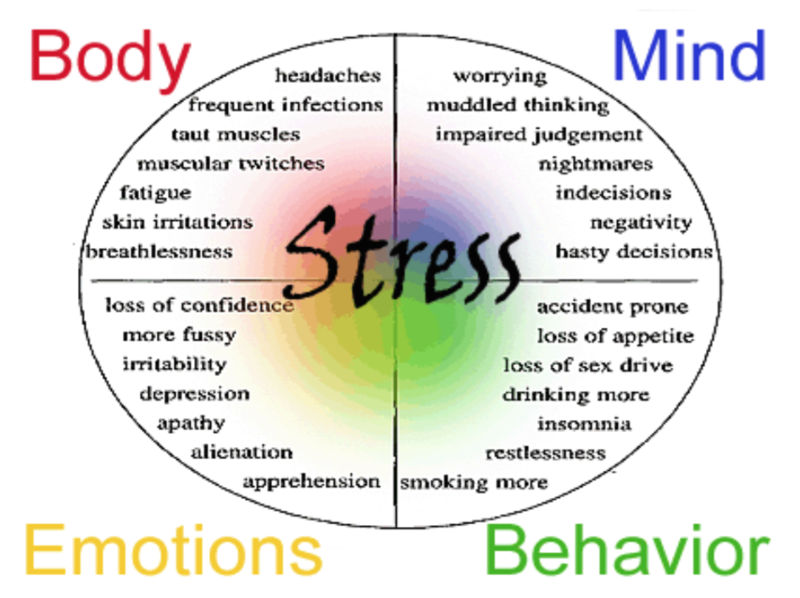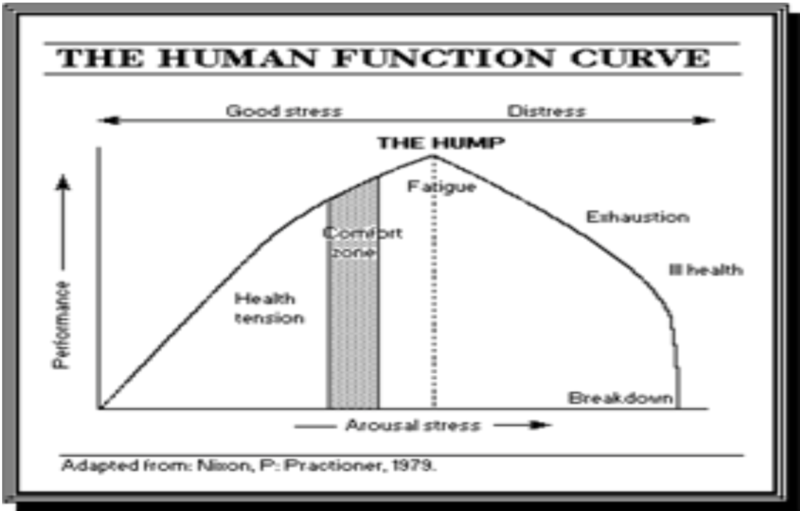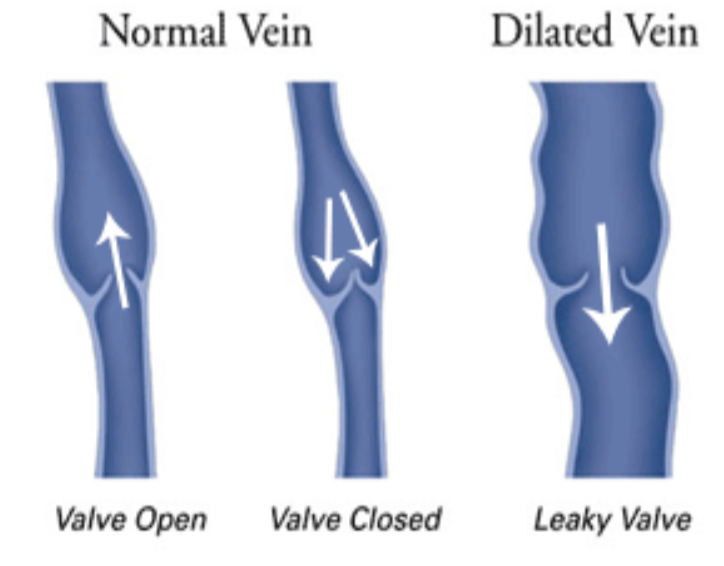In Addition
Vol 4 Uscita 5
September/October 2013
Sai Vibrionics offers health information and articles for educational purposes only; this information is not meant as medical advice. Counsel your patients to see their medical doctor about their specific medical condition.
Effects of Stress and Preventative Measures

Overview
-
We generally use the word "stress" when we feel that everything seems to have become too much - we are overloaded and wonder whether we really can cope with the pressures placed upon us.
-
Anything that poses a challenge or a threat to our well-being is a stress. Some stresses get you going and they are good for you - without any stress at all many say our lives would be boring and would probably feel pointless. However, when the stresses undermine both our mental and physical health they are bad.
Scientific Studies
Hans Selye, an Austrian-Canadian endocrinologist of Hungarian origin, noted in numerous experiments that laboratory animals subjected to acute but different noxious physical and emotional stimuli (blaring light, deafening noise, extremes of heat or cold, perpetual frustration) all exhibited the same pathologic changes of stomach ulcerations, shrinkage of lymphoid tissue and enlargement of the adrenals. He later demonstrated that persistent stress could cause these animals to develop various diseases similar to those seen in humans, such as heart attacks, stroke, kidney disease and rheumatoid arthritis.

As illustrated above, increased stress results in increased productivity – up to a point, after which things go rapidly downhill. However, that point or peak differs for each of us, so you need to be sensitive to the early warning symptoms and signs that suggest a stress overload is starting to push you over the hump. Such signals also differ for each of us and can be so subtle that they are often ignored until it is too late.
Healthy human responses to stress involve three components:
-
The brain handles (mediates) the immediate response. This response signals the adrenal medulla to release epinephrine and norepinephrine.
-
The hypothalamus (a central area in the brain) and the pituitary gland initiate (trigger) the slower maintenance response by signaling the adrenal cortex to release cortisol and other hormones.
Many neural (nerve) circuits are involved in the behavioral response. This response increases arousal (alertness, heightened awareness), focuses attention, inhibits feeding and reproductive behavior, reduces pain perception, and redirects behavior.
Causes of Stress
The degree of stress in our lives is highly dependent upon individual factors such as our physical health, the quality of our interpersonal relationships, the number of commitments and responsibilities we carry, the degree of others' dependence upon us, expectations of us, the amount of support we receive from others, and the number of changes or traumatic events that have recently occurred in our lives.
Many different things can cause stress -- from physical (such as fear of something dangerous) to emotional (such as worry over your family or job.) Identifying what may be causing you stress is often the first step in learning how to better deal with your stress. Some of the most common sources of stress are:
Survival Stress - You may have heard the phrase "fight or flight" before. This is a common response to danger in all people and animals. When you are afraid that someone or something may physically hurt you, your body naturally responds with a burst of energy so that you will be better able to survive the dangerous situation (fight) or escape it all together (flight).
Internal Stress - Have you ever caught yourself worrying about things you can do nothing about or worrying for no reason at all? This is internal stress and it is one of the most important kinds of stress to understand and manage. Internal stress is when people make themselves stressed. This often happens when we worry about things we can't control or put ourselves in situations we know will cause us stress. Some people become addicted to the kind of hurried, tense, lifestyle that results from being under stress. They even look for stressful situations and feel stress about things that aren't stressful.
Environmental Stress - This is a response to things around you that cause stress, such as noise, crowding, and pressure from work or family. Identifying these environmental stresses and learning to avoid them or deal with them will help lower your stress level.
Fatigue and Overwork - This kind of stress builds up over a long time and can take a hard toll on your body. It can be caused by working too much or too hard at your job(s), school, or home. It can also be caused by not knowing how to manage your time well or how to take time out for rest and relaxation. This can be one of the hardest kinds of stress to avoid because many people feel this is out of their control.
Effects of Stress
Excess stress can manifest itself in a variety of emotional, behavioural, and even physical symptoms, and the symptoms of stress vary enormously among different individuals.
Common somatic (physical) symptoms:
sleep disturbances
muscle tension
muscle aches
headache
gastrointestinal disturbances o fatigue
Emotional and behavioural symptoms:
Nervousness
anxiety
changes in eating habits including overeating
loss of enthusiasm or energy
mood changes like irritability and depression
It is also known that people under stress have a greater tendency to engage in unhealthy behaviours, such as excessive use or abuse of alcohol and drugs, cigarette smoking, and making poor exercise and nutritional choices, than their less-stressed counterparts. These unhealthy behaviours can further increase the severity of symptoms related to stress, often leading to a "vicious cycle" of symptoms and unhealthy behaviours.
Additional Effects of Stress:
-
Blood pressure rises
Breathing becomes more rapid
Digestive system slows down
Heart rate (pulse) rises
Immune system goes down
Muscles become tense
We do not sleep (heightened state of alertness)
Non-essential body functions slow down, such as our digestive and immune systems when we are in fight-or flight response mode. All resources can then be concentrated on rapid breathing, blood flow, alertness and muscle use.
Preventative Measures

Feeling emotional and nervous or having trouble sleeping and eating can all be normal reactions to stress. Engaging in healthy activities and getting the right care and support can put problems in perspective and help stressful feelings subside in a few days or weeks. Some tips for beginning to feel better are:
Getting active
Virtually any form of physical activity can act as a stress reliever. Even if you're not an athlete or you're out of shape, exercise is still a good stress reliever.
-
Physical activity pumps up your feel-good endorphins and other natural neural chemicals that enhance your sense of well-being. Exercise also refocuses your mind on your body's movements, improving your mood and helping the day's irritations fade away.
Laughing more
A good sense of humor can't cure all ailments, but it can help you feel better, even if you have to force a fake laugh through your grumpiness. When you laugh, it not only lightens your mental load but also causes positive physical changes in your body. Laughter fires up and then cools down your stress response.
Connecting with others
-
When you're stressed and irritable, your instinct may be to wrap yourself in a cocoon. Instead, reach out to family and friends and make social connections.
-
Social contact is a good stress reliever because it offers distraction, provides support, and helps you tolerate life's up and downs.
Trying yoga
With its series of postures and controlled-breathing exercises, yoga is a popular stress reliever. Yoga brings together physical and mental disciplines to achieve peacefulness of body and mind, helping you relax and manage stress and anxiety.
Getting enough sleep
When you have too much to do — and too much to think about — your sleep suffers. But sleep is the time when your brain and body
recharge.
-
The quality and amount of sleep you get affects your mood, energy level, concentration and overall functioning.
Getting musical and being creative
-
Listening to or playing music is a good stress reliever because it provides a mental distraction, reduces muscle tension and decreases stress hormones. Crank up the volume and let your mind be absorbed by the music.
-
If music isn't your thing, turn your attention to another hobby you enjoy, such as gardening, sewing, sketching — anything that requires you to focus on what you're doing rather than what you think you should be doing.
Sources:
http://www.medicalnewstoday.com/articles/145855.php
http://www.stress.org/what-is-stress/
http://www.medicinenet.com/stress/article.htm
http://www.mtstcil.org/skills/stress-definition-1.html
https://www.cdc.gov/violenceprevention/publichealthissue/copingwith-stresstips.html
http://www.mayoclinic.com/health/stress-relievers/MY01373/NSECTIONGROUP=2
LIVING WITH VARICOSE VEINS

Varicose veins are swollen, twisted veins that you can see just under the skin. They usually occur in the legs, but also can form in other parts of the body.
The heart pumps oxygen-rich blood into a large artery known as the aorta. The aorta divides into 2 main arteries, which continue to branch into smaller arteries delivering blood to the rest of the body. Once the oxygen has been delivered, veins carry the blood back to the heart. Unlike arteries, veins are dependent on one-way valves to keep blood moving in an upward motion. The muscles of the legs help push the blood through the veins; the one-way valves close and prevent the blood from falling back towards the feet.
When the one-way valves fail to close properly, blood can reverse its flow. Notice how the valves of the vein (in the picture) come together and prevent blood from flowing backward. Notice how the valves of the other vein do not come together and therefore allow blood to flow backward and cause the vein to enlarge (leaky). This cause’s increased pressure in the veins and over time can cause them to swell and become bulging, varicose veins. The increased pressure can lead to significant symptoms such as: swelling of the ankles or legs, severe pain and aching, and complaints of tired legs. Skin changes, ulceration and phlebitis are all possible with long-standing varicose veins. Because the blood is not flowing efficiently, clots can form in the veins causing hard lumps and severe pain. This is known as “superficial phlebitis.” This is not the type of clot that doctors worry will travel to your heart, lungs, or brain. It is possible to have varicose veins without pain or swelling, and it is not necessary to have them corrected. Varicose veins develop more often in women than in men. They increase in frequency with age. An estimated 30% to 60% of adults have varicose veins.
Contributing Factors to Varicose Veins
A number of factors predispose a person to having varicose veins. These include:
Heredity (passed on from a parent to a child through genes)
Untreated large vein insufficiency
Trauma, Surgery
High Impact Aerobics, Running, and Weight Training
Sun Damage
Sedentary Lifestyle, Obesity
Hot water, Tubs, Pedicures cause veins to dilate
Occupations that involve a lot of standing, such as seen among nurses, hair stylists, teachers, and factory workers
Obesity
Hormonal influences during pregnancy, puberty, and menopause
The use of birth control pills
Postmenopausal hormonal replacement
A history of blood clots
Conditions that cause increased pressure in the abdomen including tumours, constipation, and externally worn garments like girdles Other reported causes include trauma or injury to the skin, previous vein surgery, and exposure to ultraviolet rays.
Women often notice varicose veins with pregnancy. During pregnancy, blood volume increases by as much as 50%. The leg veins are overloaded by increased blood volume, and manifest as varicose veins. After delivery, when blood volume returns to normal, the veins remain enlarged because the valve mechanisms have been rendered insufficient by the stretch endured during pregnancy. Some women note that the varicosities worsen with each pregnancy.
Preventive Measures
Measures that help the blood flow toward the heart can be helpful in slowing the progression of varicose veins, and in minimizing discomfort associated with vein problems.
Exercising, losing weight, elevating your legs when resting, and not crossing them when sitting can help keep varicose veins from getting worse. Wearing loose clothing and avoiding long periods of standing can also help. If varicose veins are painful or you don't like the way they look, your doctor may recommend procedures to remove them.
Wearing support stockings. The most conservative approach is simply to wear properly-fitting support hose, especially when the veins cause painful or uncomfortable symptoms. These stockings can generally be purchased at any surgical supply store and at some pharmacies. They come in below-the- knee, above-the-knee, and pantyhose styles.
Making lifestyle changes. Good skin hygiene, weight loss (if needed), and walking can help treat varicose veins. Eating a low-salt diet helps reduce water retention and swelling.
http://www.nlm.nih.gov/medlineplus/varicoseveins.html
http://www.webmd.com/skin-problems-and-treatments/guide/varicose-spider-veins
http://mdveinprofessionals.com/treatment/varicoseveins
http://www.nlm.nih.gov/medlineplus/tutorials/varicoseveins/vs059103.pdf
Important: Attention All Practitioners
Some of the cases we receive are fantastic but we are not always able to share with you all the cases due to some vital missing information which can only come from the practitioners. So PLEASE when you send in your cases do make sure to include the following:
Age of the patient, male/female, date treatment started, detailed list of all acute symptoms, detailed list of all chronic symptoms, duration of each symptom, possible cause of each chronic symptom, any other past/existing treatment, combo given and its dosage, date-wise record of percentage improvement, final condition, any other relevant information.
This will help us to publish your cases in the future newsletters. If this information does not come, we may not have enough completed cases for publication in future.
Our website is www.vibrionics.org. You will need your Registration number to login to the Practitioner Portal. If your email address changes, please inform us at [email protected] as soon as possible.
You may share this newsletter with your patients. Their questions should be directed to you for answers or for research and response. Thank you for your cooperation.
